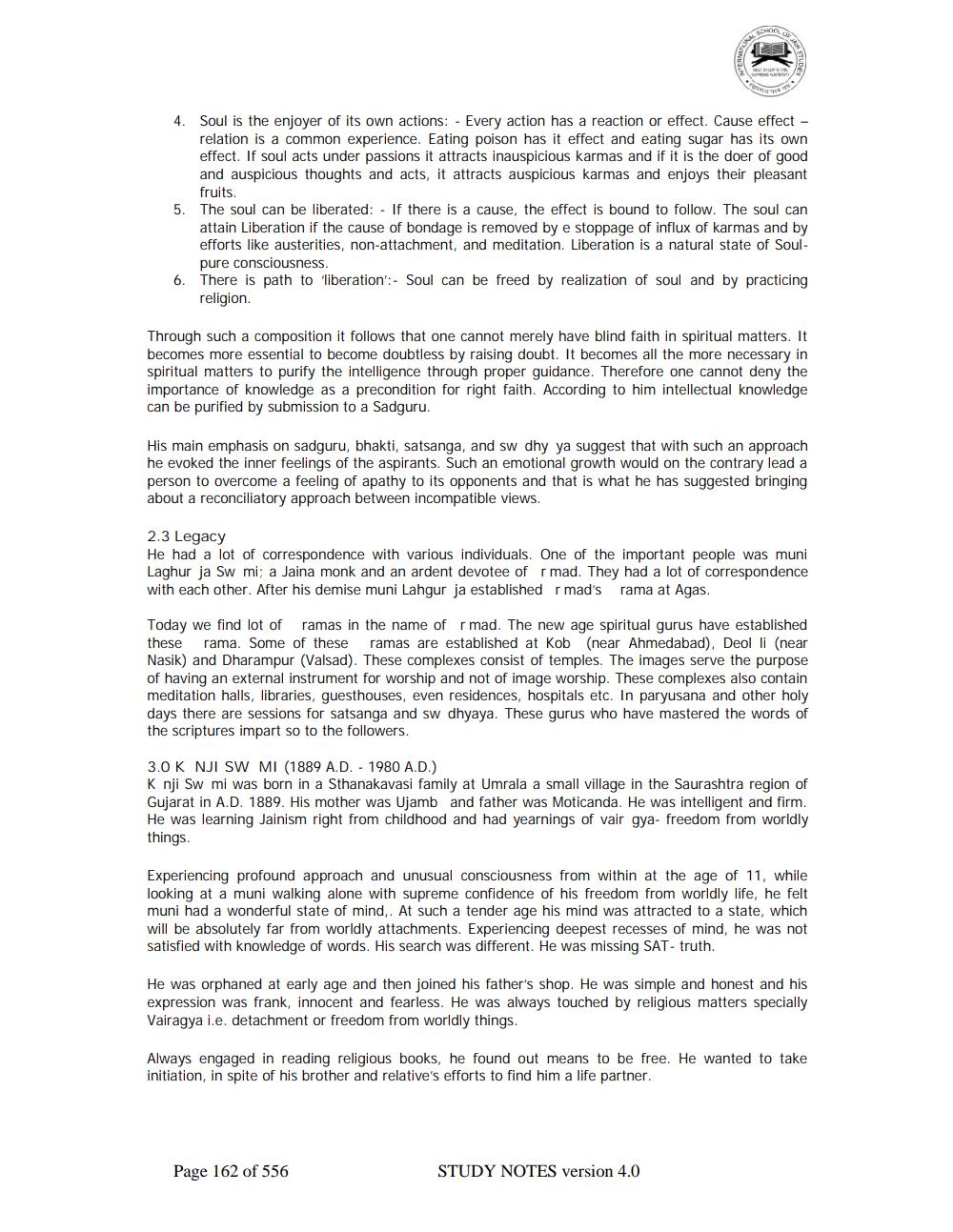________________
4. Soul is the enjoyer of its own actions: - Every action has a reaction or effect. Cause effect -
relation is a common experience. Eating poison has it effect and eating sugar has its own effect. If soul acts under passions it attracts inauspicious karmas and if it is the doer of good and auspicious thoughts and acts, it attracts auspicious karmas and enjoys their pleasant fruits.
5. The soul can be liberated: If there is a cause, the effect is bound to follow. The soul can attain Liberation if the cause of bondage is removed by e stoppage of influx of karmas and by efforts like austerities, non-attachment, and meditation. Liberation is a natural state of Soulpure consciousness.
6. There is path to 'liberation':- Soul can be freed by realization of soul and by practicing religion.
Through such a composition it follows that one cannot merely have blind faith in spiritual matters. It becomes more essential to become doubtless by raising doubt. It becomes all the more necessary in spiritual matters to purify the intelligence through proper guidance. Therefore one cannot deny the importance of knowledge as a precondition for right faith. According to him intellectual knowledge can be purified by submission to a Sadguru.
His main emphasis on sadguru, bhakti, satsanga, and sw dhy ya suggest that with such an approach he evoked the inner feelings of the aspirants. Such an emotional growth would on the contrary lead a person to overcome a feeling of apathy to its opponents and that is what he has suggested bringing about a reconciliatory approach between incompatible views.
2.3 Legacy
He had a lot of correspondence with various individuals. One of the important people was muni Laghur ja Sw mi; a Jaina monk and an ardent devotee of r mad. They had a lot of correspondence with each other. After his demise muni Lahgur ja established r mad's rama at Agas.
Today we find lot of ramas in the name of r mad. The new age spiritual gurus have established these rama. Some of these ramas are established at Kob (near Ahmedabad), Deol li (near Nasik) and Dharampur (Valsad). These complexes consist of temples. The images serve the purpose of having an external instrument for worship and not of image worship. These complexes also contain meditation halls, libraries, guesthouses, even residences, hospitals etc. In paryusana and other holy days there are sessions for satsanga and sw dhyaya. These gurus who have mastered the words of the scriptures impart so to the followers.
3.0 K NJI SW MI (1889 A.D. 1980 A.D.)
K nji Sw mi was born in a Sthanakavasi family at Umrala a small village in the Saurashtra region of Gujarat in A.D. 1889. His mother was Ujamb and father was Moticanda. He was intelligent and firm. He was learning Jainism right from childhood and had yearnings of vair gya- freedom from worldly things.
Experiencing profound approach and unusual consciousness from within at the age of 11, while looking at a muni walking alone with supreme confidence of his freedom from worldly life, he felt muni had a wonderful state of mind,. At such a tender age his mind was attracted to a state, which will be absolutely far from worldly attachments. Experiencing deepest recesses of mind, he was not satisfied with knowledge of words. His search was different. He was missing SAT- truth.
He was orphaned at early age and then joined his father's shop. He was simple and honest and his expression was frank, innocent and fearless. He was always touched by religious matters specially Vairagya i.e. detachment or freedom from worldly things.
Always engaged in reading religious books, he found out means to be free. He wanted to take initiation, in spite of his brother and relative's efforts to find him a life partner.
Page 162 of 556
STUDY NOTES version 4.0




